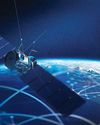
The Cybersecurity hazard is at an all-time high due to several changes in the business environment. The proliferation of personal devices and the adoption of the hybrid work model and digital technologies are creating multiple vulnerable nodes that are exposed to security breaches.
Organisations and their CISOs are challenged by the evolving threat landscape. The need for strategic thinking and rehashing the fundamental security architecture construct is much higher than ever. In this context, the Zero Trust Security Architecture is one approach that’s increasingly getting a lot of traction. At a higher level, Zero Trust assumes that your business is continuously compromised, and the architecture aims to mitigate that.
SECURITY FROM A DIFFERENT PERSPECTIVE
Fundamentally, cyber security is a risk management function where we need to make decisions on tradeoffs or risk acceptance when we implement controls. It is difficult to imagine a world where we would only have absolute control. Another important factor to note is that trust is contextual. The security world has built various models and solutions for adaptive controls or transparent controls. These models are based on answering questions about who, where, why, when and what of a transaction before any verification, approval or denial is made.
Security architecture has always relied on trust models. There are many technical controls that we trust before we grant or deny access to resources. For all this to work properly, security teams must ensure the highest degree of integrity to handshakes or trust.
This story is from the May,2023 edition of Voice and Data.
Start your 7-day Magzter GOLD free trial to access thousands of curated premium stories, and 9,000+ magazines and newspapers.
Already a subscriber ? Sign In
This story is from the May,2023 edition of Voice and Data.
Start your 7-day Magzter GOLD free trial to access thousands of curated premium stories, and 9,000+ magazines and newspapers.
Already a subscriber? Sign In

Cloud endoscopy breakthrough for real-time remote diagnostics
NTT Corporation and Olympus Corporation have demonstrated the feasibility of real-time remote diagnosis and treatment using the world's first endoscopy system powered by IOWN All Photonics Network (APN) technology. The breakthrough experiment successfully processed endoscopic videos on a server located 150 km away, overcoming latency issues and enabling seamless diagnostics.

Rise of the homegrown telecom infrastructure
Telecom infrastructure, once led by US and European designs and made in China, iS Now increasingly designed and manufactured in India, marking a pivotal shift

Balancing innovation and regulation for a connected future
Crafting agile governance ensures equitable, sustainable growth, blending innovation with societal protection in a hyper-connected digital age

Driving transformative shifts towards digital leadership
India's telecom sector, driven by 5G, bold policies, and cross-sector collaborations, is paving the way to global digital infrastructure leadership

Scaling AI in data centres for the next big leap
GPU-optimised data centres are vital for advancing India’s Al ambitions, enabling it to meet growing computational demands and maintaining global competitiveness

Bridging gaps with AI's transformative communication wave
AI-driven real-time communication reshapes industries, enhancing connections, operational efficiency, and immersive experiences in a digital-first world

Weaving the fabric of CDN efficiency
Local peering transforms CDNs by cutting latency, boosting reliability, and ensuring seamless, high-speed delivery for modern digital experiences

From orbit to opportunity: Redefining connectivity
India's satcom sector is set to revolutionise connectivity through hybrid networks, bridging the digital divide and driving innovative technologies for growth

Orchestrating telecom's smart future
AI and automation can revolutionise telecom networks, crafting intelligent, selfoptimising systems to meet future demands and deliver seamless connectivity

Unlocking the true potential of IoT
Specialised silicon and 5G are set to redefine loT's future, driving AloT innovations that deliver real-time intelligence, security, and seamless connectivity